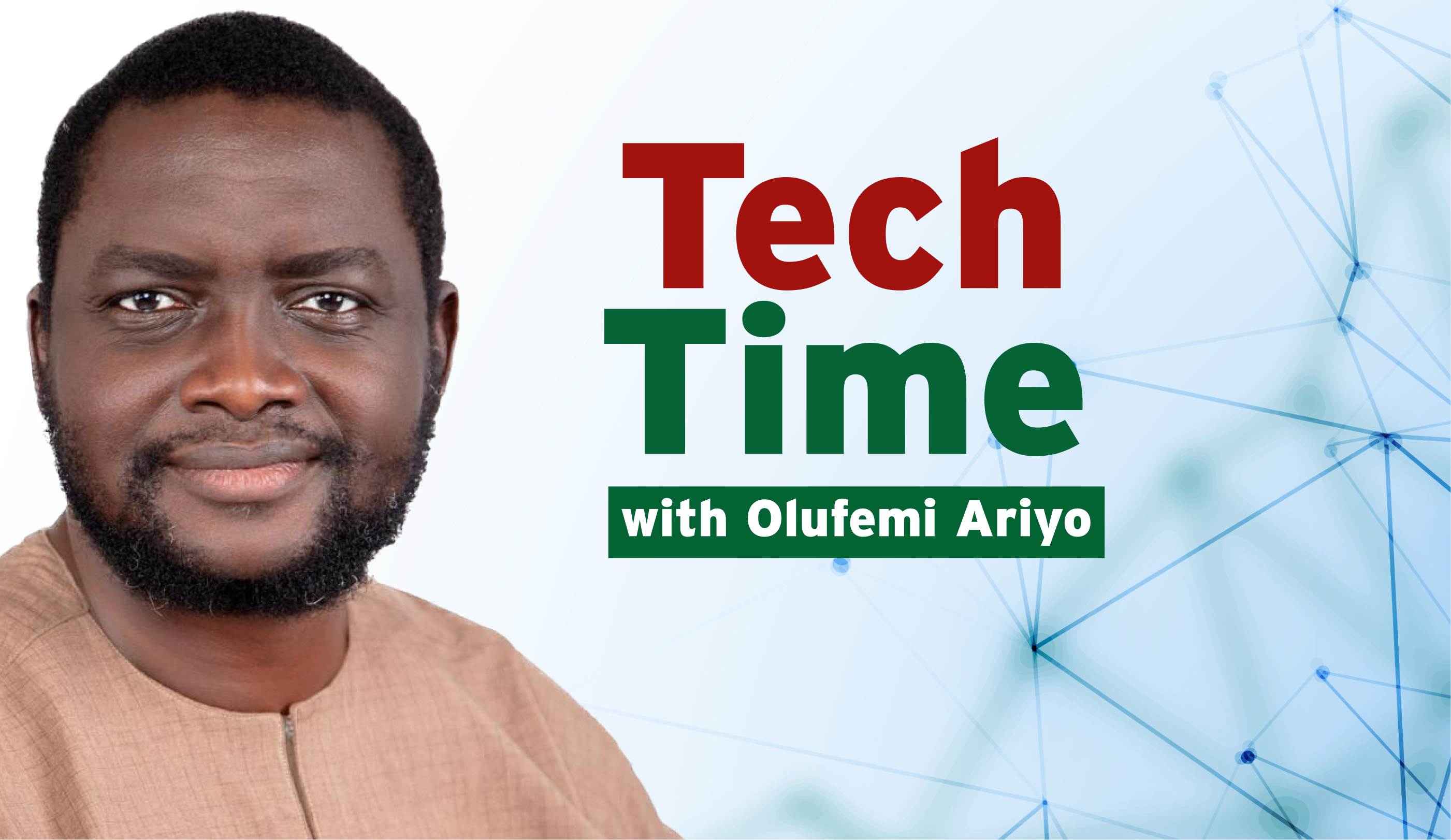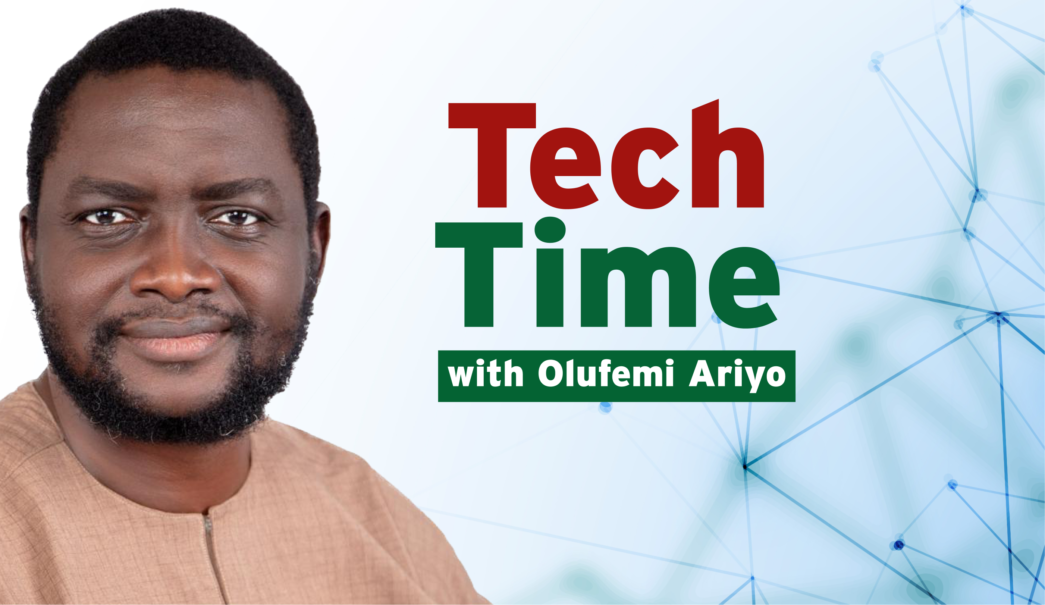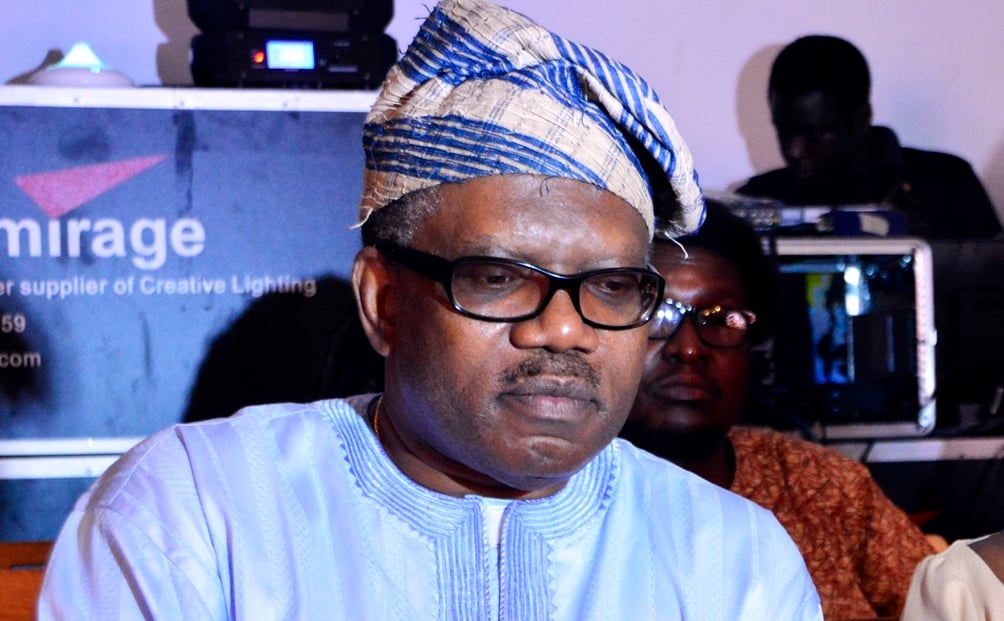Africa is undergoing a profound socioeconomic shift driven by rapid digital adoption. With a population exceeding 1.4 billion people, more than 60% under the age of 25, and over 570 million mobile internet users, the continent is experiencing one of the fastest rates of digital transformation in the world. By 2030, Africa’s digital economy is projected to reach over $180 billion, powered by connectivity expansion, fintech innovation, remote work, and a fast-growing technology talent base.
Within this transformation, a new socioeconomic group is emerging—the Digital Middle Class. Unlike the traditional middle class defined by stable salaried employment, this class is shaped by digital capability, online income generation, remote access to global markets, and technology-enabled financial inclusion. From freelance developers in Lagos to online merchants in Nairobi and mobile-money-driven micro-entrepreneurs in Accra, this new class is redefining what economic mobility looks like on the continent.
This shift is structural, and goes beyond a mere technological one. It is reshaping economies, empowering youth, driving productivity, and creating new pathways out of poverty. With millions of Africans now earning, learning, and building businesses online, the Digital Middle Class is poised to become one of the most significant socioeconomic developments of the next decade. The sections below explore ten key dimensions fueling this rise, and how technology is rebuilding economic hope across African countries.
- Defining the Digital Middle Class in Africa
The Digital Middle Class in Africa represents a new socioeconomic group defined not by traditional salary structures, government classifications, or consumption habits, but by the ability to participate meaningfully in the digital economy. Unlike the conventional middle class—which typically emerges from formal employment in sectors such as banking, manufacturing, or the public service—this new class is built on digital capability, online productivity, and technology-enabled opportunity. It reflects a shift from credential-based prosperity to skills-based and connectivity-driven mobility.
Advertisement
Furthermore, a defining feature of this class is access to reliable internet, digital devices, and affordable data, which form the foundation for participation in digital markets. Individuals in this group use smartphones, laptops, and cloud tools not merely for communication or entertainment, but as instruments for income creation. Their economic identity is inherently digital: they learn online, work online, sell online, and transact online. Simply put, connectivity is not an add-on—it is the primary infrastructure of their livelihood.
Equally important is the ability to earn income through online or tech-enabled channels. This earning model spans a wide spectrum, including remote software developers working for global companies, content creators monetising platforms like YouTube and TikTok, artisans selling products via e-commerce marketplaces, and professionals offering remote consulting or freelance services internationally. Earnings may fluctuate, but the scalability and global reach of digital income streams fundamentally differentiate this class from traditional, locally constrained work models.
Another key characteristic is their participation in regional or global digital markets. Through platforms such as LinkedIn, Youtube, Upwork, Fiverr, Amazon, Jumia, Currex, Paystack, and various gig-economy networks, members of this class access audiences and opportunities far beyond their local communities. This exposure increases their earning potential while deepening their competitiveness, entrepreneurial mindset, and resilience in navigating modern economic systems.
Advertisement
Finally, digital financial identity—facilitated by fintech platforms, mobile money, digital wallets, and alternative credit scoring—plays a crucial role in solidifying this group. With billions of dollars flowing through Africa’s digital payments ecosystem, the Digital Middle Class enjoys improved access to credit, savings products, and cross-border payment systems. These financial tools amplify their economic mobility, enabling reinvestment, business growth, asset accumulation, and long-term stability. Together, these dynamics position the Digital Middle Class as a powerful engine of upward mobility, innovation, and inclusive economic growth across the continent.
- Remote and Cloud Jobs as the New Income Ladder
Remote and cloud-based work have rapidly become one of the most powerful income ladders for African youth, enabling them to bypass traditional economic limitations and compete on a global stage. The widespread adoption of cloud technologies—such as AWS, Azure, and Google Cloud—has removed geographical barriers, allowing professionals in cities like Lagos, Nairobi, Accra, and Kigali to work seamlessly with teams in North America, Europe, and the Middle East. This shift has democratised access to high-value digital roles, offering income levels previously attainable only through migration.
The growth of global freelance platforms has further amplified these opportunities. Marketplaces such as Upwork, LinkedIn, Fiverr, Toptal, and Deel now host thousands of African developers, designers, digital marketers, and analysts who offer competitive skills to international clients. At the same time, African startups are adopting hybrid-remote models, delivering services to foreign markets while keeping talent within the continent. This trend is reinforced by the rising quality of digital training academies, bootcamps, and cloud certifications that supply job-ready talent to global demand. For instance, 24-year-old Ayoola in Lagos started freelancing on Upwork after completing a cloud computing bootcamp. Within six months, she was earning more than twice the local average salary, allowing her to reinvest in online courses and launch a small consultancy serving clients in the U.S. and Europe through LinkedIn.
As a result, remote work is emerging as one of Africa’s most powerful economic equalisers. It enables youth to earn in stronger currencies, build global professional networks, and access career growth pathways without facing migration restrictions, high relocation costs, or visa obstacles. For many young Africans, the combination of cloud-powered productivity and remote employment is not just a technological shift—it is a transformative economic lifeline that is redefining what upward mobility looks like in the digital era.
Advertisement
- Micro-Entrepreneurship and Platform Economies
Micro-entrepreneurship has expanded rapidly across Africa as technology lowers the barriers to starting and scaling a business. With over 84% smartphone penetration projected by 2027 and mobile internet usage continuing to rise, millions of young Africans are using simple digital tools to create income streams that previously required capital, physical shops, or formal structures. A single smartphone now enables inventory management, customer communication, digital marketing, and online payments—transforming entrepreneurship into an accessible pathway for upward mobility.
Platform economies have accelerated this shift significantly. Social commerce is booming: in Nigeria, over 55% of online shoppers buy through WhatsApp or Instagram, while platforms such as Jumia, Konga, and Facebook Marketplace collectively support hundreds of thousands of small merchants. Meanwhile, gig-economy platforms like Bolt, Uber, Glovo, and Gokada provide flexible income to an estimated 4.8 million African workers, according to recent industry reports. Digital creators are also emerging as powerful micro-entrepreneurs—Africa’s creator economy is expected to surpass $20 billion by 2030, driven by monetised educational content, music, micro-influence, and niche digital services.
As these platforms scale, they are producing a new wave of micro and nano enterprises that collectively strengthen Africa’s digital middle-income segment. Each entrepreneur—whether running a small fashion shop on Instagram, delivering food through Glovo, or selling products on Jumia—contributes to a broader shift toward technology-enabled commerce and financial independence. This distributed entrepreneurial boom is not only empowering individuals but also reshaping local economies and redefining what sustainable income generation looks like in the digital age.
- Digital Financial Inclusion as an Enabler
Digital financial inclusion has rapidly become one of the strongest pillars enabling Africa’s emerging digital middle class. Mobile money and digital wallets now serve as the primary financial infrastructure for millions who were previously excluded from traditional banking. As of 2023, Africa accounted for over 70% of the world’s mobile money transactions, with more than 560 million registered mobile money accounts across the continent. This widespread adoption provides individuals with instant access to savings tools, low-cost transfers, and digital credit—services that were historically inaccessible through brick-and-mortar banks.
Advertisement
Fintech innovations are deepening this transformation by turning alternative data into financial opportunity. Platforms now use mobile usage patterns, transaction histories, and online business activity to generate credit scores for individuals and SMEs. In countries like Kenya, Ghana, and Nigeria, digital lenders have issued over $8 billion in micro and SME loans in the last few years, offering entrepreneurs the capital they need to grow. Cross-border remittances—valued at $54 billion annually in Sub-Saharan Africa—are increasingly being routed through digital channels, reducing transaction costs by up to 40% and enabling families to retain more value.
Thanks to fintech platforms such as Opay, MTN MoMo, Flutterwave, Currex, and M-Pesa, individuals and small businesses can now build verifiable financial identities even without formal banking relationships. These digital transaction histories support loan approvals, business expansion, supplier trust, and eligibility for larger financial products. As more people transition from cash to digital payments, they unlock the stability, transparency, and growth required to move firmly into the digital middle class—demonstrating how financial inclusion is directly driving upward economic mobility across Africa.
Advertisement
- EdTech and Self-Upgrading of Skills
EdTech has become one of the most powerful drivers of skills mobility in Africa, helping millions acquire market-ready digital competencies outside traditional classroom structures. With higher education systems struggling to keep pace with population growth—Sub-Saharan Africa has the world’s fastest-growing youth population, expected to reach 1.1 billion by 2050—online learning platforms have filled a critical gap. As of 2024, more than 18 million Africans are enrolled in global EdTech platforms like Coursera, Udemy, Udacity, and Google Career Certificates, while YouTube Learning reports exponential growth in Africa-based tech and vocational content consumption.
These platforms offer industry-aligned, affordable, and flexible learning opportunities that enable people to pivot careers within months. ALX alone has trained over 100,000 young Africans in software engineering, cloud computing, and data analytics in less than three years. Google Career Certificates have been completed by tens of thousands across Nigeria, Kenya, and South Africa, with up to 75% of learners reporting positive career outcomes such as new jobs, promotions, or increased income. Local EdTech companies—including uLesson, AltSchool Africa, and Edukoya—are also providing Africa-specific training models tailored to local job markets.
Advertisement
This accelerated shift from degree-dependent employment to skills-based earning potential is a cornerstone of Africa’s emerging Digital Middle Class. Digital learners gain globally competitive skills that unlock remote jobs, gig opportunities, freelance income, and tech entrepreneurship. As more Africans self-upskill through these accessible platforms, they increase their economic agency, resilience, and earning power—redefining how professional advancement and social mobility are achieved across the continent.
- AI as a Social Class Accelerator
Artificial intelligence is emerging as one of the most powerful accelerators of social mobility in Africa, enabling individuals to compete at global standards without needing expensive tools, advanced degrees, or large teams. With AI adoption rising rapidly—Africa’s AI market is projected to reach $17 billion by 2030, growing at nearly 30% annually—millions of people are using AI tools to enhance creativity, productivity, and professional output. AI-powered writing, design, coding, and analysis tools now allow content creators, marketers, entrepreneurs, and freelancers to deliver work that once required specialist expertise or entire teams.
Advertisement
AI is also transforming education and skills development. AI tutors and adaptive learning platforms allow students and adult learners to access personalised instruction at a fraction of traditional costs. Studies show AI-powered tutoring can improve learning outcomes by up to 30%, making it especially transformative in regions where teacher-to-student ratios remain high. Meanwhile, AI translation tools—from English to Swahili, Hausa, Amharic, Arabic, and French—enable African freelancers to work across linguistic borders, tapping into international markets and increasing earning potential. This is particularly impactful in a continent with over 2,000 languages, historically a barrier to cross-border collaboration.
For MSMEs and solo entrepreneurs, AI acts as a force multiplier. Small businesses now automate customer service, manage accounting, optimise inventory, and run targeted digital marketing campaigns—tasks that previously required multiple employees or external agencies. Early data shows AI adoption can boost productivity by up to 40%, allowing a single individual to perform the work of several people. This productivity increase translates directly into higher competitiveness, income growth, and accelerated upward mobility, creating new pathways for millions of Africans to join the Digital Middle Class.
Yet AI also brings risks that must be managed carefully to avoid widening inequality. The International Labour Organization estimates that 24% of jobs worldwide are at high risk of automation, with clerical and routine roles most vulnerable. In Africa, where informal and low-skill service jobs constitute over 70% of employment, displacement risk is significant—particularly in retail, basic administration, and transportation. However, research suggests AI is more likely to transform rather than eliminate jobs, with up to 83% of roles potentially augmented. The World Economic Forum projects that AI will create 69 million new jobs globally by 2027, especially in data analytics, digital content creation, cybersecurity, AI operations, and cloud technologies—areas where African youth are increasingly upskilling. Strategic investment in digital education, reskilling, and responsible AI adoption will be critical to ensure AI serves as a net creator of opportunity rather than a driver of exclusion.
Importantly, the benefits of AI are not confined to urban professionals. When combined with widespread connectivity, affordable devices, and digital literacy, AI tools can empower individuals in smaller towns and rural communities to participate meaningfully in the digital economy, bridging the gap between urban and rural opportunity.
- Urban vs. Rural Digital Middle Class Growth
The growth of Africa’s Digital Middle Class is no longer confined to major cities like Lagos, Nairobi, Kigali, and Johannesburg. Rural communities—historically underserved—are beginning to access global digital opportunities at unprecedented levels. Satellite internet providers such as Starlink and OneWeb, along with national deployments in Nigeria, Kenya, Rwanda, and Mozambique, are enabling rural households to achieve speeds that rival urban centres. Rural internet penetration, currently around 32%, is projected to exceed 50% by 2030, opening the door for millions of new digital participants.
Moreover, community tech hubs and rural skills centres are accelerating this transformation. In Kenya, Ghana, and South Africa, innovation labs and digital learning hubs equip youth with coding, digital marketing, and e-commerce skills. Low-cost smartphones, now averaging $40–$60, enable rural learners and micro-entrepreneurs to leverage these platforms. In Nyamata, Rwanda, 29-year-old Amina sells handcrafted baskets online via WhatsApp and M-Pesa. Affordable devices and improved connectivity allowed her to triple her income in just two years, demonstrating how digital tools can directly foster economic mobility outside urban centres.
This combination of connectivity, digital skills, and technology adoption—including AI—is nurturing a rural Digital Middle Class. Freelancers are joining global marketplaces, farmers are leveraging agritech apps for pricing and supply-chain visibility, and micro-entrepreneurs are monetising social commerce. As these opportunities expand beyond cities, rural Africa is becoming a critical engine of economic growth, proving that the digital economy is now a continent-wide pathway to prosperity.
- Policy and Infrastructure Requirements
A thriving Digital Middle Class relies heavily on supportive policy frameworks and robust infrastructure. Affordable, high-speed internet remains the backbone of digital inclusion. Currently, only 43% of Africans have reliable internet access, and mobile broadband costs remain high—averaging 7.4% of monthly income, compared to the UN target of 2%. Expanding 4G and 5G networks, subsidising broadband in underserved regions, and promoting competition among internet providers are critical steps to ensure that remote work, e-commerce, and online education reach every corner of the continent.
Furthermore, digital identity systems and regulatory frameworks are equally important. National digital IDs, like Ghana’s “Ghana Card” and Nigeria’s NIN, enable citizens to access fintech services, e-government platforms, and formal financial systems. At the same time, consumer data protection laws—such as Nigeria’s NDPR, Kenya’s Data Protection Act, and South Africa’s POPIA—build trust in digital platforms and safeguard users. Countries with clear, startup-friendly regulations see 50–70% higher rates of digital business creation, illustrating the direct link between governance, regulatory clarity, and the growth of the Digital Middle Class.
Public-private partnerships further accelerate digital inclusion by combining investment, expertise, and innovation. Initiatives such as Rwanda’s Smart Africa Alliance, Kenya’s Ajira Digital Program, and Nigeria’s Tech Hubs Network have created thousands of tech training opportunities, particularly for youth and women. Studies show that countries with active public-private tech initiatives experience up to 25% faster adoption of digital skills among youth, translating directly into entrepreneurship, remote work participation, and SME growth. When policy, infrastructure, and collaboration converge, digital earners can thrive, creating broader economic scale and resilience across African economies.
- Risks and Inequalities to Address
While the rise of the Digital Middle Class is promising, significant risks and inequalities persist. Africa still faces a gendered digital divide, with women 23% less likely than men to have internet access, according to ITU 2024 data. Rural communities remain disproportionately affected, with only 36% of rural households online compared to 61% in urban areas. Without targeted interventions in infrastructure, affordability, and digital literacy, these disparities could exclude millions from participating in the digital economy. As former UN Secretary-General Ban Ki-moon noted, “Digital inclusion is not a luxury—it is a necessity for equitable development.”
Misinformation, online scams, and unregulated platforms also pose risks for new digital earners. Reports indicate that 1 in 5 African freelancers have encountered fraud or payment disputes on global marketplaces, while online scams cost the continent an estimated $1.4 billion annually. Job displacement in traditional sectors is another concern, with automation and AI affecting routine roles in manufacturing, clerical work, and services. These trends highlight the need for digital workers to develop resilient, transferable skills and for governments to implement policies protecting gig economy participants.
Finally, over-reliance on foreign platforms and income instability in gig work present structural risks. African digital earners often depend on platforms like LinkedIn, Upwork, Fiverr, Jumia, and Airbnb, making them vulnerable to policy changes or algorithmic shifts. According to the World Bank, gig workers earn up to 35% less than traditional employees, with volatile earnings varying by month. Addressing these inequalities requires local platform development, social safety nets, financial literacy programs, and regulatory frameworks to stabilise incomes. As tech ethicist Timnit Gebru emphasises, “Equitable AI and digital economies must be designed with the most vulnerable at the centre, not the margins.”
- The Next Decade: Africa’s Digital Middle-Class Boom
“The best way to predict the future is to create it,” says Peter Drucker, and nowhere is this more evident than in Africa’s rapidly evolving digital landscape. The continent is witnessing the rise of a Digital Middle Class, defined not by traditional employment alone but by digital skills, global connectivity, and technology-enabled opportunity. As Nelson Mandela reminds us, “Education is the most powerful weapon which you can use to change the world.” In this context, technology is the new education, enabling young Africans to chart new paths to prosperity through online work, micro-entrepreneurship, and tech-driven innovation.
Youth-led digital exports are becoming a cornerstone of this transformation. African freelancers, developers, and creative professionals are increasingly delivering services to clients around the globe. As Muhammad Yunus, the founder of Grameen Bank, notes, “Once poverty is gone, freedom is gone,” highlighting that access to opportunity is as critical as income. Remote work hubs in cities like Lagos, Accra, Kigali, and Cape Town are empowering talent to scale across borders while retaining local roots. Importantly, rural innovation hubs and expanding internet access are ensuring that opportunity is no longer confined to urban centres but reaches towns and villages previously locked out of the global economy.
Digital-native SMEs and micro-enterprises are accelerating regional economic integration. Platforms for e-commerce, fintech, and app-based services are creating scalable business models, providing thousands of micro-entrepreneurs with access to new markets. As Richard Branson observes, “Business opportunities are like buses; there’s always another one coming.” For Africa’s digital entrepreneurs, every app, marketplace, and fintech solution is a bus that can take them toward sustainable income, growth, and intergenerational wealth creation.
Moreover, the rise of the Digital Middle Class strengthens social and economic resilience. Technology-enabled incomes diversify household earnings, reduce dependency on traditional employment, and foster financial inclusion through digital banking and mobile money. As Kofi Annan wisely said, “Knowledge is power. Information is liberating.” In this sense, digital opportunity is liberating households, empowering communities, and creating multiplier effects that benefit local economies, education, and healthcare.
In conclusion, the next decade will see Africa’s Digital Middle Class emerge as a central pillar of the continent’s prosperity. By combining technology, skills, and entrepreneurial drive, millions of young Africans are redefining pathways to opportunity, wealth, and social mobility. As Tony Robbins reminds us, “The only limit to your impact is your imagination and commitment.” The future of African economic growth is digital, and this new class is not just participating in the global economy—it is helping to shape it.
Thank you for investing your time and attention. For more than 120 of my curated insights, follow me on Medium or connect with me on LinkedIn. You can also reach me directly via email at [email protected].







